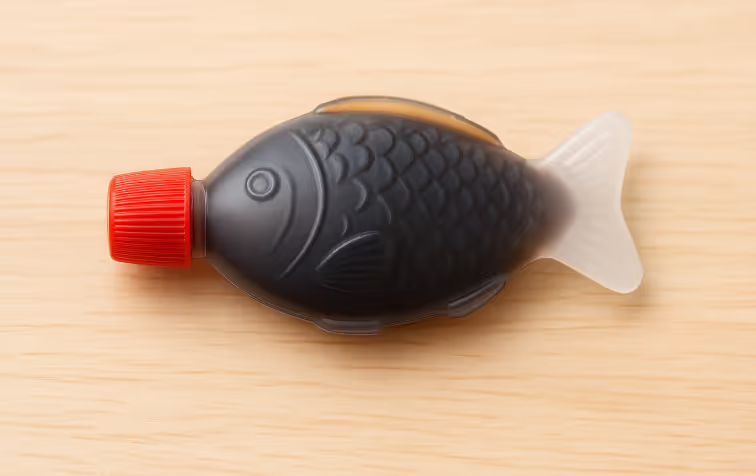Stay informed with our newsletter.
.webp)

.webp)

An Australian state has officially prohibited the use of small, fish-shaped soy sauce bottles, a popular single-use item often found in takeaway meals, to address growing concerns about plastic pollution. Authorities believe the ban will help curb the significant amount of plastic waste entering landfills and waterways each year. The move highlights the state’s broader commitment to sustainability and reducing single-use plastics, encouraging businesses and consumers to adopt eco-friendly packaging alternatives.

Starting Monday, authorities introduced a uniquely targeted restriction on fish-shaped soy sauce bottles, arguing they cause more environmental harm than other condiment packaging.
These miniature bottles, often adored by sushi lovers for their quirky design, have now been banned in South Australia, where they’ve been added to the growing list of outlawed plastics.
Home to 1.9 million people, South Australia became the first state in the nation to roll out this prohibition as part of its ambitious effort to cut plastic waste. Each year, the state expands its blacklist of banned plastics, making its approach the most far-reaching in the country.
Although singling out the novelty-shaped bottles might appear oddly precise, officials explained they are especially hazardous to marine ecosystems, as sea creatures could confuse them for food once they reach waterways.
Deputy Premier Susan Close stated that the bottles are easily lost, blown away, or washed into drains, making them a frequent source of plastic pollution. Even when collected, she added, their size prevents them from being sorted by recycling equipment, leaving them destined for landfill or littering the environment as stray waste.
Restaurants are now required to replace them with larger, refillable dispensers or with single-use alternatives considered less harmful, including sachets, squeezable packs, or compostable containers. The ban specifically targets both fish-shaped and small rectangular soy sauce bottles under 30 milliliters, including those with lids or stoppers.
The updated legislation also prohibits items like plastic utensils or straws that come attached to packaged foods, such as the straws found with juice boxes.
This step continues a long-running campaign in South Australia, which pioneered plastic bag bans in 2009 and later broadened restrictions in 2021 to include plastic cutlery, straws, takeaway packaging, and disposable coffee cups. Additional items, like balloon sticks, confetti, and cotton swabs, have also been removed from circulation.
The state’s Environment Protection Authority oversees compliance, with penalties ranging from warnings to potential legal action. pcoming bans will extend to stickers often placed on fresh produce, such as apples, but this change has been postponed until after 2025, following concerns from growers about higher costs and logistical challenges.
Worldwide, governments are introducing various bans on consumer plastics. In 2023, New Zealand became the first country to ban thin produce bags nationwide, while Lagos, Nigeria, recently outlawed single-use items, though enforcement remains inconsistent.
Plastic consumption has surged dramatically in recent decades, particularly single-use products that can take centuries to break down. According to the United Nations Environment Programme, the equivalent of 2,000 garbage trucks of plastic waste enters oceans, rivers, and lakes every day, causing environmental harm, threatening marine animals, and impacting human health.
Recycling efforts remain minimal, with U.N. figures showing that about 85% of single-use bottles and containers either end up in landfills or are mismanaged. Meanwhile, global negotiations for a binding treaty on plastic pollution stalled in August, as oil-producing nations resisted including restrictions on plastic production, given plastics’ roots in fossil fuels.
For questions or comments write to contactus@bostonbrandmedia.com
Source: NDTV
